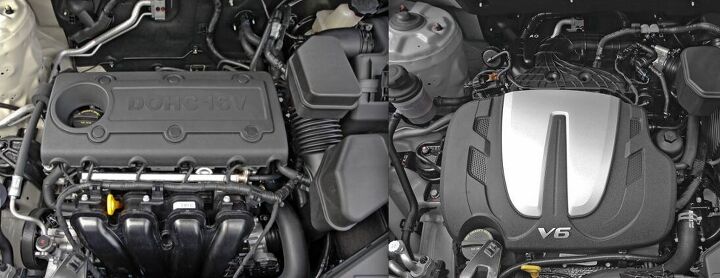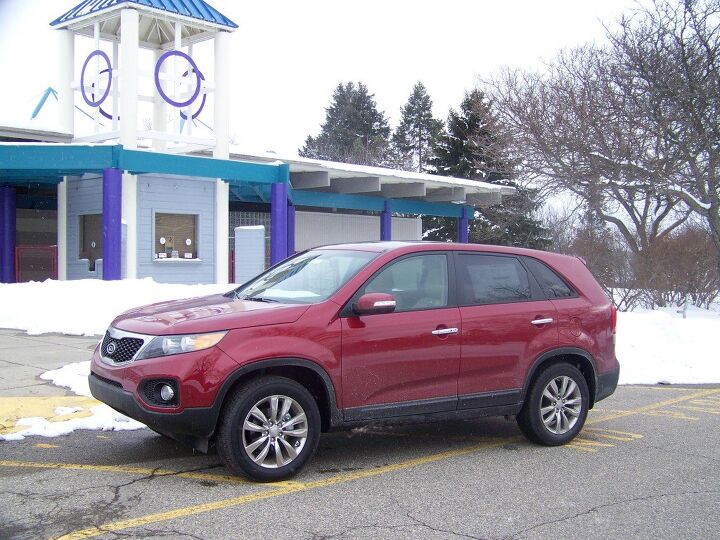#sorento
V6 Or Four-Cylinder?
Do you buy the base four-cylinder, or upgrade to a V6? For most car-purchasing decisions, this is an important question to think through. And usually the trade-offs are simple: you can pay more for more power and less efficiency with the V6, or save money and gas with the four-potter. And with fuel prices staying volatile, four-cylinder engines are becoming all the more popular: for example, Hyundai’s new Sonata has been engineered to be four-cylinder only. But according to Consumer Reports, the differences between the V6 and the four-cylinder option aren’t always as clear as you might expect.
Review: 2011 Kia Sorento
Within my first mile in the original Kia Sorento I couldn’t help but wonder, “Is that a live rear axle I feel?” I stopped the vehicle, peered beneath it and, sure enough, there it was. The Sorento looked like a car-based crossover, but body-on-frame construction, a two-speed transfer case, and a live rear axle dwelled beneath the Mercedes-inspired sheetmetal. The upshot: superior off-road capability, but subpar fuel economy and ride quality. Well, the Sorento has been redesigned, and as with the Sportage before it the trucky bits have been tossed in favor of a Hyundai car-based foundation. Specifically, the 2011 Kia Sorento is now a Hyundai Santa Fe beneath the surface. Now that it’s much like all of the others, why buy the Kia?

















Recent Comments